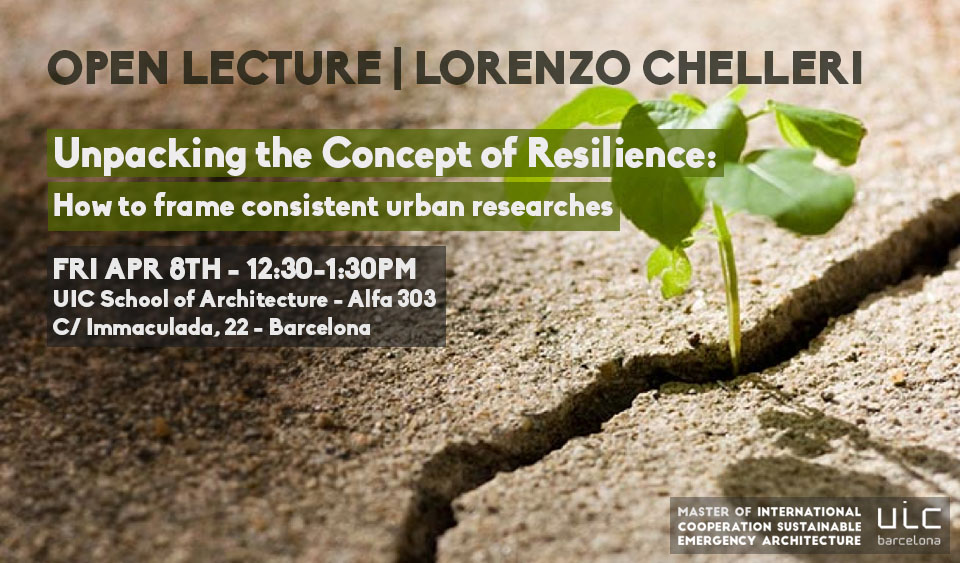 This Friday, our faculty member Lorenzo Chelleri, a Postdoctoral Researcher at Gran Sasso Science Institute (GSSI Social Sciences) and founding member of the Urban Resilience Research Network, will give a talk that explores the origin and evolution of the links between resilience and urban systems, tackling the limits of the classic risk-reduction oriented approaches and addressing emerging challenges for a concept that, despite its over-use, he argues, is one still worth applying in urban studies.
This Friday, our faculty member Lorenzo Chelleri, a Postdoctoral Researcher at Gran Sasso Science Institute (GSSI Social Sciences) and founding member of the Urban Resilience Research Network, will give a talk that explores the origin and evolution of the links between resilience and urban systems, tackling the limits of the classic risk-reduction oriented approaches and addressing emerging challenges for a concept that, despite its over-use, he argues, is one still worth applying in urban studies.
Building the “Resilient City” has been an emerging imperative during the last decade, mainly related to the challenges posed to cities by climate change and natural disasters. Critical urban studies literature has recently argued that the prominence gained by resilience and its metaphorical meaning of “dealing with change” has stretched this concept to be consider an umbrella embracing any urban challenge.
Unfortunately, while enlarging its spectrum of perspectives, resilience has been experiencing an increasing emptiness of meanings. Integrated city resilience frameworks have tried to un-pack the metaphor of resilience within different domains of action, supporting its operationalization following policy reports and discourses promoting the imperative of urban resilience building.
Indeed, urban resilience is partially overlapping with other similar and complementary key concepts, as urban sustainability or smart cities paradigms. So why should be worth studying urban resilience? Which are its boundaries? How does it contribute to complement synergistically other key concepts in urban studies? And how it has replaced old-fashion concepts, by adding what to their research questions? The exploration of different case studies will help the audience in the understanding of urban resilience theory advances and of the research challenges for urban studies in framing consistent research questions around urban resilience.
Join us this Friday at 12.30 at UIC Campus.

